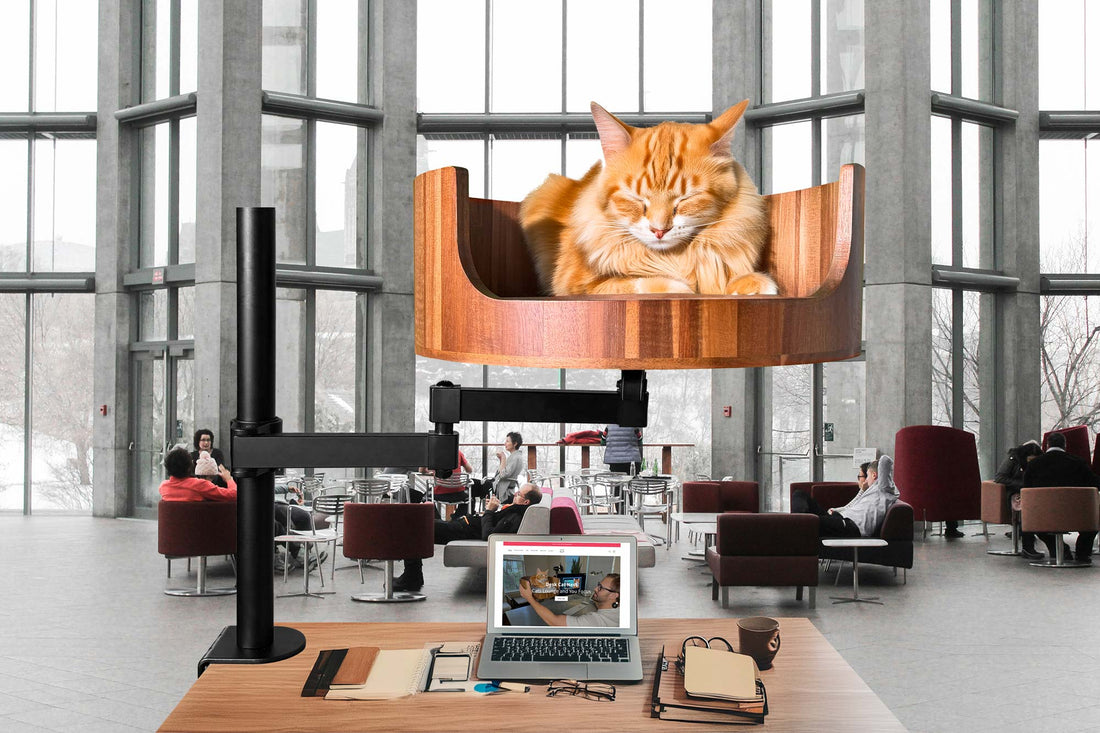
Why is my cat shivering: Understanding feline chills
Share
If you've ever noticed your furry feline friend shivering, you may be left wondering what could be causing it. From harmless chills to potential health concerns, understanding why your cat is shivering can help you provide the necessary care and attention. In this article, we will delve into the reasons behind why cats shiver and what you can do to help your beloved pet feel more comfortable.
From environmental factors such as cold temperatures to underlying health issues like anxiety or fever, there are a variety of reasons why your cat may be experiencing chills. By recognizing the signs and symptoms of shivering in cats, you can better pinpoint the cause and take appropriate action. Additionally, we will explore how you can create a warm and cozy environment for your cat to prevent shivering in the future. Stay tuned to gain a deeper understanding of feline chills and how you can ensure your kitty's well-being.
1. Stress, anxiety, or fear can cause cats to shiver, so it's essential to create a calm and comfortable environment for your feline friend.
2. Medical conditions such as hypothermia, hyperthyroidism, or infections could also be the reason behind your cat's shivering, necessitating a visit to the veterinarian.
3. Cats may shiver when they are cold, so ensure they have access to warm bedding and shelter during cold weather.
4. Regular grooming can help uncover any skin issues that may be causing discomfort or shivering in cats.
5. Pay attention to your cat's behavior and seek professional help if their shivering persists or is accompanied by other concerning symptoms.
## Symptoms of shivering in cats
Shivering in cats can be caused by a variety of reasons, including pain, anxiety, illness, or environmental factors. Understanding the symptoms can help you identify the underlying cause of your feline friend's discomfort. Common signs of shivering in cats may include trembling movements, hunching or crouching position, and seeking warmth or isolation. It's important to observe your cat's behavior closely and consult with a veterinarian if you notice these symptoms persisting.
## Common causes of shivering in cats
There are several potential reasons why your cat may be shivering. Some common causes include fever, low body temperature, stress or anxiety, pain or discomfort, and hypoglycemia. It's important to consider your cat's overall health, recent changes in their environment, and any possible triggers that may have led to their shivering episodes. By identifying the root cause, you can provide appropriate care and support for your furry companion.
## Treating shivering in cats
When it comes to treating shivering in cats, the underlying cause must be addressed to ensure your pet's well-being. Depending on the reason behind the shivering, treatment may involve providing warmth, administering medication, addressing any illnesses or injuries, or reducing stress triggers. It's crucial to work with your veterinarian to develop a treatment plan tailored to your cat's specific needs and condition. By addressing the root cause of the shivering, you can help your cat feel comfortable and relaxed once again.
## Preventing shivering in cats
To prevent your cat from shivering in the future, it's essential to create a safe and comfortable environment for them. Ensure your cat has access to warm and cozy resting spots, especially during colder weather. Keep their living space clean and free from potential hazards or stressors. Regular check-ups with your veterinarian can also help identify any underlying health issues that may contribute to shivering in cats. By taking proactive measures to maintain your cat's health and well-being, you can minimize the risk of them experiencing unnecessary discomfort or chills.
Frequently Asked Questions
Why is my cat shivering?
There are several reasons why your cat might be shivering. It could be due to anxiety, fear, low body temperature, or a health issue. It's important to observe your cat's behavior and consult with a veterinarian to determine the cause.
How can the Desk Cat Nest help with my cat's shivering?
The Desk Cat Nest provides a cozy and warm environment for your cat to relax and feel safe. The enclosed space helps retain your cat's body heat, which can be particularly beneficial if your cat is shivering due to low body temperature or anxiety.
Is the Desk Cat Nest suitable for all cat breeds?
Yes, the Desk Cat Nest is designed to accommodate cats of all sizes and breeds. The spacious and comfortable design ensures that your cat has plenty of room to stretch out and curl up as needed.
How do I clean the Desk Cat Nest?
The Desk Cat Nest is made of durable and easy-to-clean materials. Simply remove the cushion and wash it according to the care instructions provided. For the outer shell, you can spot clean or wipe down with a damp cloth as needed.
Can the Desk Cat Nest help with other behavior issues in my cat?
While the Desk Cat Nest is primarily designed to provide a cozy sleeping space for your cat, many customers have found that it can also help with anxiety, stress, and other behavior issues. The enclosed space allows your cat to feel safe and secure, which can have a positive impact on their overall well-being.
In conclusion, investing in a Desk Cat Bed is a valuable choice for addressing why your cat may be shivering. The warm and cozy design of the bed provides a comfortable and secure space for your furry friend to relax and alleviate any discomfort or anxiety that may be causing them to shiver. With its soft material and supportive structure, the Desk Cat Bed offers a safe and comforting environment for your cat to feel at ease and warm throughout the day. Make the thoughtful choice to prioritize your cat's well-being and choose a Desk Cat Bed to keep them happy and content.



















































